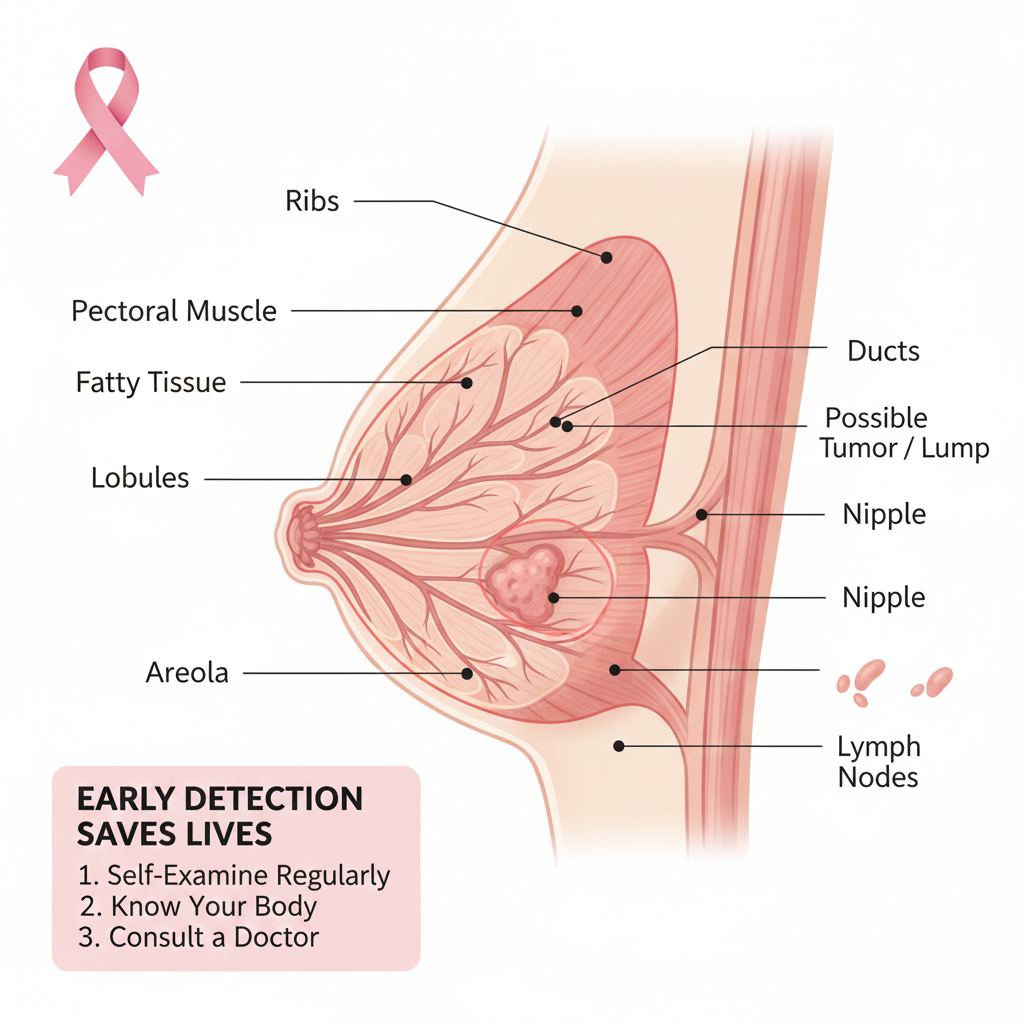INFORMATION ON COLON CANCER

Cancer Awareness
What is colon?
Where is it located?
The colon is a part of the body’s digestive system. The digestive system is made up of the esophagus, stomach, small and large intestine. The main part of the large intestine is called the colon, which is about 150 cm long. This is split into four sections: the ascending, transverse, descending and sigmoid colon. Some water and salts are absorbed into the body from the colon. The colon leads into the rectum (back passage). Major organs lie around the colon including the duodenum, liver, kidney, spleen, and pancreas.
Why have I developed colon cancer?
Development of colon cancer cannot be attributed to any single factor. There are certain risk factors which increase the chance of developing colon cancer. Risk factors include
- Age – colon cancer is more common in older people ( 50 and above)
- A family history of cancer of the colon or rectum
- A personal history of the colon, rectum, ovary, endometrium or breast
- A history of ulcerative colitis or Crohn’s disease (conditions of the colon) for more than 8-10 years
- Obesity
- Lifestyle factors – little exercise, drinking lot of alcohol
- Certain hereditary conditions such as familial adenomatous polyposis, hereditary nonpolyposis colon cancer (HNPCC Lynch syndrome)
However, patients may develop these cancers even without any of these risk factors being present.
What are the symptoms of colon cancer?
The presentation of colon cancer depends on the site of the tumor. A doctor should be consulted if any of the following occur
- A change in bowel habits
- Blood (either bright red or very dark) in the stool
- Diarrhea, constipation or feeling that the bowel does not empty completely
- Frequent gas pains, bloating, fullness or cramps.
- Weight loss for no reason.
- Feeling very tired.
- Vomiting
All patients above the age of 40 years are advised to have a faecal occult blood test every 6 months. If positive, the patent is sent for a colonoscopy. It is advisable for adults above the age of 40 years, especially those with a family history of bowel cancer, to get themselves tested for faecal occult blood by visiting their family physician.
Unexplained anemia is another form of presentation. If
the cancer spreads to other parts of the body, various other symptoms can
develop depending on the site of spread. Colon cancer can also present with
complications such as intestinal obstruction, intestinal perforation and
bleeding. All the above symptoms can be due to other conditions, so tests are
needed to confirm colon cancer.
What investigations will I be subjected to?
The best investigation to diagnose colon cancer is colonoscopy with a biopsy of the tumour. A computed tomography (CT) scan of the abdomen and pelvis will help to support the diagnosis of the cancer as well to determine whether the cancer is at an early stage or whether it has spread to the lymph nodes, liver or other organs and if the colon cancer has infiltrated the surrounding organs. Serum CEA (a blood test) is a marker used in colon cancer. It is especially useful if its value is high as this indicates that the patient’s cancer may be advanced, thereby adding to other investigations when deciding other treatment options. After curative surgery, its level becomes normal. Thus it is routinely performed at follow-up to help detect recurrence of the cancer. Liver function tests, chest X-ray and or CT scan , etc. are other investigations to decide the stage of the disease. If an operation is being planned, some more tests may be necessary to decide fitness of the patient for general anesthesia.
Are there different
types of colon cancer?
Yes, there are different types of colon cancer depending on the type of cell / tissue from which the cancer is arising. Adenocarcinoma is the most common type of colon cancer. Gastrointestinal stromal tumours (GIST), lymphoma, leiomyoma are some of the less common types of colon cancers. The treatment depends on the type of cancer.
At what stage is the
cancer?
Accurate staging
of the cancer is based on histopathology and will be possible only after
surgery. Colon cancer can be broadly classified into
Early cancer – cancer only within the colon with no spread of disease outside of it
Locally advanced – when the cancer appears large and or/ invading other surrounding organs, with enlarged lymph nodes
Metastatic – when the cancer has spread far from the colon, for e.g. to the liver, lungs, etc. These patients also usually have some fluid building up in the abdomen.
Now that I have been
diagnosed to have colon cancer, how will I be treated?
Different types of treatment are available for patients with colon cancer. Three types of standard treatment are used:
- Surgery
- Chemotherapy
- Targeted Therapy
Surgery is the most common treatment for all stages of colon cancer. Some patients may be given chemotherapy therapy after surgery to kill any cancer cells that are left. Chemotherapy is a cancer treatment that uses drugs to stop the growth of cancer cells either by killing the cells or stopping them from dividing. Targeted therapy uses drugs or substances to identify and attack specific cancer cells without harming normal cells.
Which kind of surgery is
done for colon cancer?
The type of surgery depends on the location of the cancer and
extent. There are curative and palliative colectomies.
Curative surgeries are done with an aim to remove the
entire cancer with a margin of normal tissue around and all the lymph nodes
involved (lymphadenectomy). These include:
- Right hemicolectomy refers to the resection of the
ascending colon.
- Left hemicolectomy refers to the resection of the
descending colon.
- Extended hemicolectomy is when a part of the transverse
colon is also resected.
- Sigmoid colectomy refers to the resection of the sigmoid
colon.
- Total colectomy refers to the resection of the entire
colon.
- Subtotal colectomy refers to the resection of the part of
the colon or a resection of the entire colon without complete resection of the
rectum.
Palliative surgery is done for symptom control and not
with intent for cure. This is because these surgeries are done in patients with
advanced disease who have developed complications of the cancer (mentioned
above). In an obstructing advanced cancer, only a bypass of the block (colostomy)
may be possible. Sometimes, even if a patient is taken up for emergency surgery
due to a complication of the cancer, no resection may be possible if the
disease is very advanced and the colon will just have to be closed without any
further surgical intervention.
In some patients with an obstruction who are not fit for surgery, endoscopic stenting of the tumour may be attempted.
Are there any
alternatives besides surgery?
Till date,
surgery is the only proven curative option for colon cancer.
How do I prepare myself for surgery?
The preparation is generally similar to any major surgery. If you
are a smoker it is absolutely essential to stop smoking. Breathing exercises
using the incentive spirometer and football bladder should be started. Follow
the anesthetist’s advice regarding continuation of medications if you are on
any. A high protein diet is preferred to improve nutrition.
How major is the surgery? What are the possible complications?
Colectomies with lymphadenectomy and other colon surgeries are deemed as major surgeries with a risk of complications and a very small risk of death (<2>
The complications of Colectomies (removal of the colon and lymph nodes and joining back (anastomosis) the healthy bowel / intestine) include:
- Leak of anastomosis
- Bleeding from the anastomosis
- Bladder and ureteric injuries
- Injury to the duodenum
- Wound infections
For how long do I stay in the hospital?
In an uncomplicated case, hospital stay after surgery is 7-10 days. This may be longer when there are complications.
Will I need any further treatment after surgery?
The decision about adjuvant treatment is based on the final histopathology report which will be available approximately 7-10 days following surgery. If any of the lymph nodes are positive and your general condition is good enough then you may be referred to the medical (GI) oncologist for consideration for chemotherapy.
What will be my survival after surgery? Are there any chances of the
cancer coming back?
The survival depends on the stage of the disease. The average 5-year survival for all stages after curative surgery for colorectal cancer is between 40-75?pending on the stage of the cancer. As of date there is no foolproof way of predicting which patients will have recurrence and which patient will not.
Are there any special precautions I need to take to prevent cancer
from coming back?
No there are no such proven precautions.
How frequently should I follow up after surgery?
After
completion of treatment you will be advised to follow-up once in 3-4 months in
the first 2 years. Then the frequency will be reduced to once in 6 months for
the next 2-3 years. Subsequent follow up will be once a year. During each
follow-up you will be asked to do certain blood tests, especially












